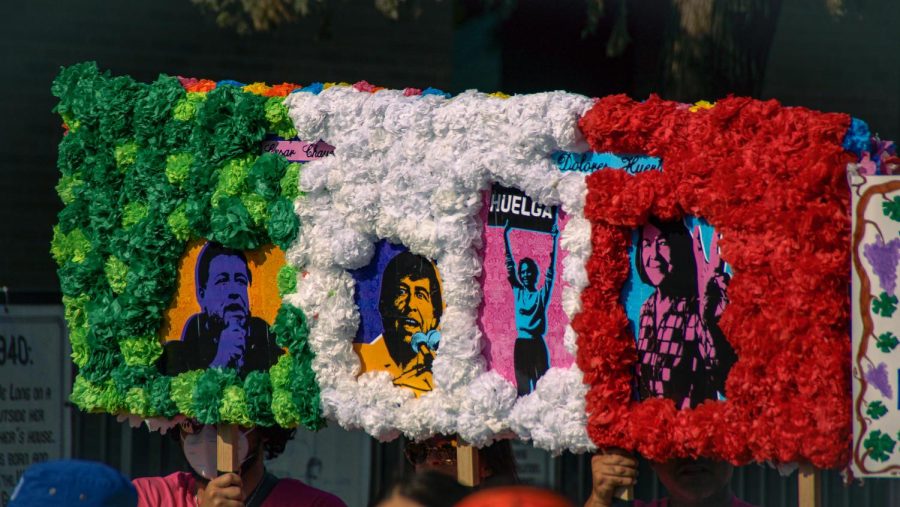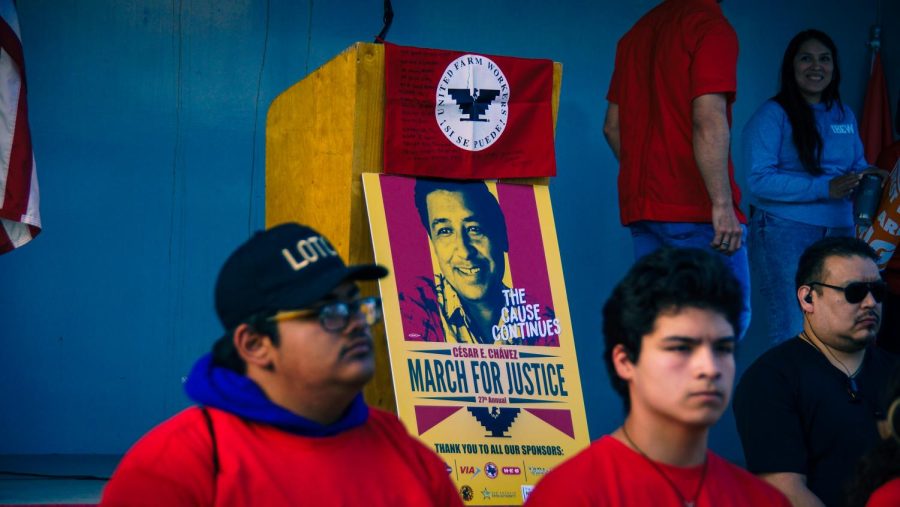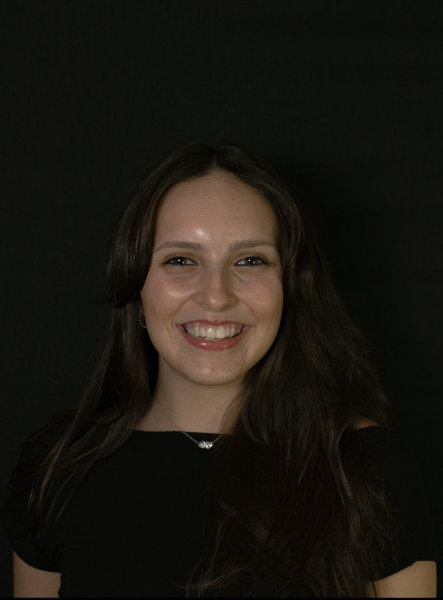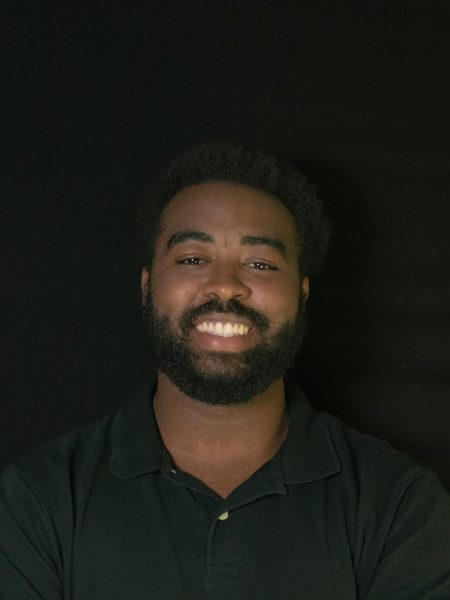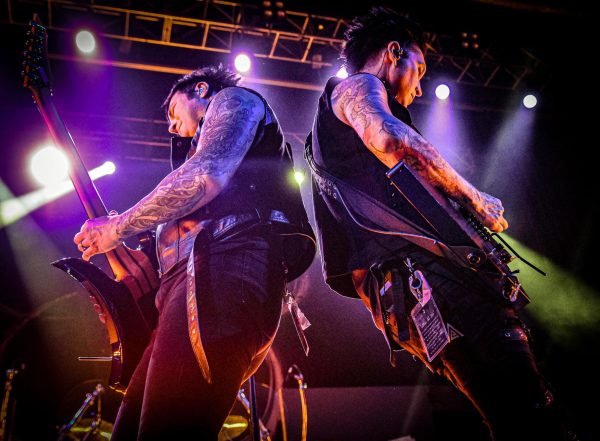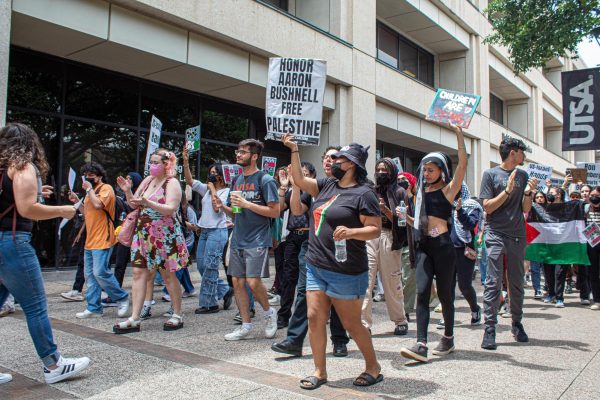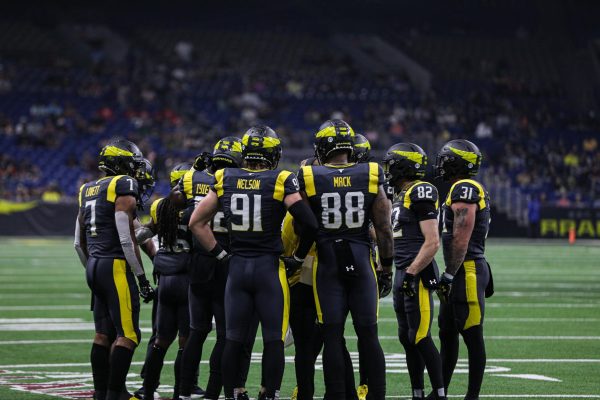Annual march commemorates legacy of revered activist Cesar E.Chavez
March 28, 2023
The annual Cesar E. Chavez March for Justice celebrates Chavez’s “Si Se Puede Spirit” and the importance of coming together to overcome the injustices and inequalities in the community.
Hosted by the Cesar E. Chavez Legacy & Educational Foundation, this year’s march took place in downtown San Antonio at the intersection of Guadalupe and Brazos streets. Members of the UTSA community also participated in the march.
“The San Antonio Cesar E. Chavez March for Justice began in 1997 to join folks from diverse backgrounds to march in unity from the Westside to downtown San Antonio to remember Chavez’s fight for equity for all farm workers,” Morgan Gimblet, program manager at UTSA’s Multicultural Student Center for Equity and Justice, said. “Today, the march reminds us how we continue to march on issues such as wage disparities, food insecurity, voting rights, education reform and access to equitable healthcare services.”
This year’s speakers included Councilwoman Rosie Castro and her son, HUD secretary Julian Castro.
Rosie Castro explained the building blocks of obtaining liberty and justice for all.
“For 27 years, we have done this march,” she said. “These folks that put it together have done so out of love for their community, out of an understanding that we have to work toward choices. Every time we launch, every time we do this, we get closer and closer to having the reality of liberty and justice for all.”
She also talked about the Latino community and the values that they share.
“I know that a lot of you here are family,” she continued. “We’re a family that is proud of where we’re from, that sticks together, that prioritizes education, that encourages voting. We have made San Antonio the great place that it is.”
Her son, Julian Castro, also spoke at the march about the importance of community post-pandemic.
“We just went through these last three years through time in the United States and the world that we have never seen before,” Julian said. “The pandemic has taken more than a million lives in the United States and many more around the world. I hope that if there is one thing that we’ve gathered for the last three years [it is ] that we’re all in this together.”
He concluded by stating the lessons that can be learned from Chavez’s legacy.
“All of us are connected, and all of us have a role to play in making sure we lift up every single person,” he continued. “My hope today is that we take the teachings in the legacy, in the passion, in the commitments of Cesar Chavez through the years and that we turn that into action today.”

